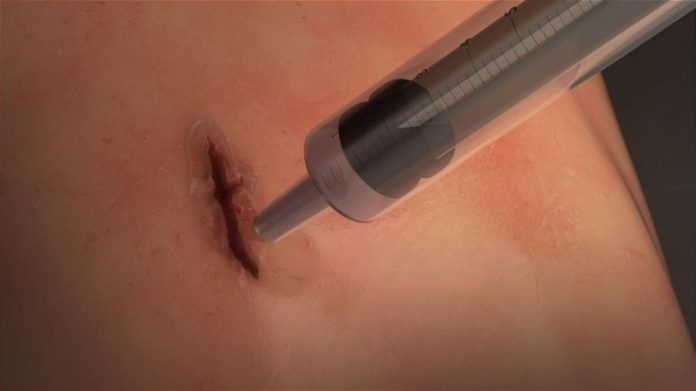The new surgical glue will offer a popular alternative to sutures.
A group of American and Australian engineers has recently collaborated to develop a new life-saving surgical glue. Engineers attempted this latest order in order to enhance current wound closing methods.
The new surgical glue can seal incisions within seconds.
The design of the surgical glue, called MeTro, was based on a hybrid-elastic protein which can be applied to either external or internal wounds. The glue can successfully seal wounds within 60 seconds. The glue will offer surgeons and patients a much quicker method to seal wounds than the current method which is generally limited to either stitches or staples.
So far, the glue has only been successfully tested on rodents and pigs, but the engineers involved in MeTro firmly believe that this innovative invention has the power to change the medical industry, especially the field of emergency surgeries. The glue can seal both skin wounds as well as bodily tissues. The latter is noteworthy as incisions in the bodily tissue such as the lungs, heart, and arteries, always run the risk of rupturing as the bodily tissues expand and contract.
The results found in animal trials were recently published in a detailed paper appearing in the Science Translation Medicine.
So far MeTro has been developed to be used during hospital surgeries alone. Once the glue has been developed and tested on humans, the glue can also be used as an instant solution to high-risk environments such as war zones.
MeTro glue works in that once it is applied to a wound, the glue immediately solidifies. It takes on a gel-like formation which effectively fills all gaps in the wounds and conforms to the shape of the wound. After application, it is further treated using a UV light to stabilize the wound and allow the glue to settle into the incision.
According to assistant professor, Nasim Annabi, the glue mechanism allows the sealant to be placed much more accurately. In turn, this will encourage a tighter bond as well as tissue surfaces interlocking more efficiently. Annabi was responsible for overseeing the application of MeTro in various clinical settings and conditions. In addition, Annabi author the report on the glue.
MeTro contains an inbuilt enzyme which allows it to degrade as soon as the sealed has healed sufficiently. Notably, the enzyme has the ability to be modified according to the wound requirements.
According to professor Anthony Weiss, a member of the research team, the glue responds remarkably well biologically. The fact that it interfaces so closely with human tissue will encourage a quicker healing period. The glue is also easy to store and can be applied directly and with ease onto a wound.
The glue will soon be tested on humans which will determine the viability of incorporating this new invention into the medical field.

















